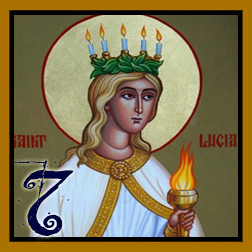Currently Reading






Find me elsewhere:
16 Tasks of the Festive Season: Square 7 - International Human Rights Day: Et vous vouliez me dire quoi encore, M. Senécal?


A French buddy read with Tannat (who doesn't seem terribly inclined to make progress rapidly with this book, either) -- and since it's not only a book originally written in a language other than English, and in a language different from my mother tongue (plus, a book by a Québecois, i.e., non-Anglo-Saxon author), I'm also counting it towards square 7 of the 16 Festive Tasks (International Human Rights Day).
Vivre au Max is the first half of a two-part novel entitled Le vide ("the void," "the emptiness"). It's also the title of a TV show which, if it were real, would make the likes of Jerry Springer look like innocent choir boys. The show promises to fulfill three candidates' wildest and most unreachable dreams per episode (at least 2 out of 3 of these dreams, or "trips," typically being sordid beyond compare): "au max" is a word play on both "to the max" and its creator's and host's name -- Maxime Lavoie, former president and CEO of a ski apparel company founded by his father; a position, that Max (a would-be humanitarian and intellectual) had taken on only half-heartedly to begin with, and quickly got fed up with when he realized that his high-flying notions to turn the company into a model of social virtues -- at the shareholders' cost -- were not going to be put into practice in any way that would have counted.
Max Lavoie is one of three men on which the story centers; the other two are a cop named Pierre Sauvé, who is investigating a quadruple shooting that initially looks every bit like a case of violent domestic revenge, and a psychologist named Fédéric Farland, who ... well, let's just say that having gotten bored with life's ordinary thrills, he is seeking ever more exotic and dangerous ones. Of the three protagonists, I really only ever took to Pierre -- certainly not Frédéric, whom I hated pretty much from the first page of his appearance (and not merely for his utter amorality and contempt of life); and while I was unsure initially about Max, he lost my sympathy when I had clued into where the story was headed. Not that I feel very much like bothering to find out: I still don't get what, deep down, Mr. Senécal's point in writing this book ultimately might have been, but I don't care about two of the three principal characters, and if the story is headed anywhere near where I think it is headed, it's not the sort of thing I need in my life at all.
That said, the buddy read has accomplished its primary goal, in bringing back the fun of reading something in a different language than German or (mostly) English. So Tannat, if / whenever you finish this and aren't too ennuie on your part, I'd definitely be up for another one ...







 11
11  4
4 